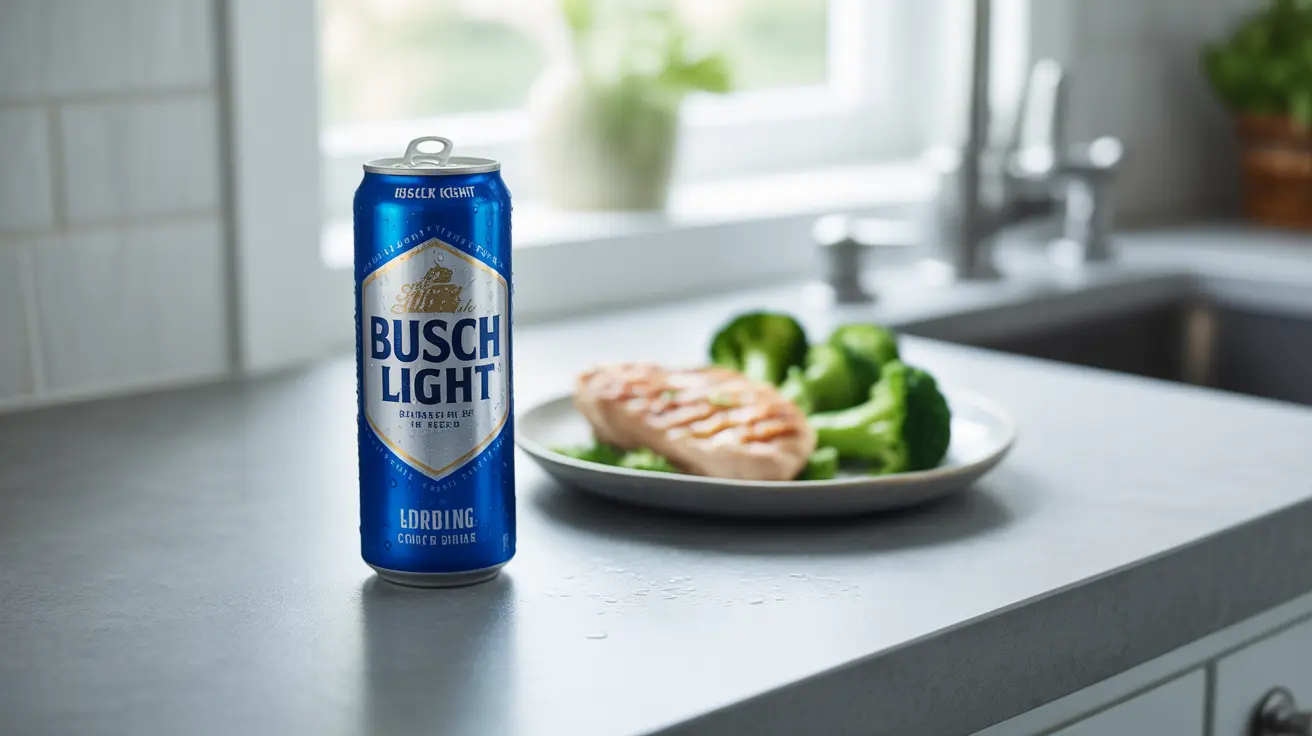For those watching their carbohydrate intake while still wanting to enjoy a beer, understanding the nutritional content of different options is crucial. Busch Light has become a popular choice among health-conscious beer drinkers, known for its lighter profile and lower carbohydrate content compared to regular beers.
This comprehensive guide will break down everything you need to know about Busch Light's carbohydrate content and how it fits into a balanced lifestyle, especially if you're monitoring your carb intake.
Nutritional Profile of Busch Light
Busch Light is specifically crafted to provide a lighter alternative to traditional beers while maintaining a satisfying taste. Each 12-ounce serving contains essential nutritional elements that make it a considerable option for those watching their intake.
Carbohydrate Content
Busch Light contains 3.2 grams of carbohydrates per 12-ounce serving, making it one of the lower-carb options in the light beer category. This reduced carbohydrate content is achieved through a specialized brewing process that converts more of the grain's starches into alcohol.
Caloric Content
A 12-ounce serving of Busch Light contains 95 calories, positioning it as a lighter alternative to full-strength beers. This calorie count comes primarily from the alcohol content and remaining carbohydrates.
Comparing Busch Light to Other Beers
Understanding how Busch Light stacks up against other beer options can help you make informed choices about your beverage selection.
Light Beer Comparison
When compared to other light beers, Busch Light holds its own in terms of carbohydrate content:
- Miller Lite: 3.2g carbs
- Bud Light: 6.6g carbs
- Coors Light: 5g carbs
- Busch Light: 3.2g carbs
Regular Beer Comparison
The difference becomes more pronounced when comparing Busch Light to regular beers:
- Regular Budweiser: 10.6g carbs
- Regular Coors: 11.7g carbs
- Regular Miller: 13.1g carbs
Alcohol Content and Its Impact
Busch Light has an alcohol by volume (ABV) of 4.1%, which is slightly lower than regular beers. This lower alcohol content contributes to its reduced calorie count while still providing an enjoyable drinking experience.
Fitting Busch Light Into a Low-Carb Diet
With its minimal carbohydrate content, Busch Light can be incorporated into most low-carb dietary plans in moderation. However, it's important to remember that any alcohol consumption should be counted toward daily nutritional goals.
Frequently Asked Questions
How many carbohydrates are in a 12-ounce serving of Busch Light beer? A 12-ounce serving of Busch Light contains 3.2 grams of carbohydrates.
Is Busch Light a good low-carb beer option compared to other light beers? Yes, Busch Light is one of the better low-carb beer options available, with its 3.2 grams of carbohydrates per serving being on par with or lower than many competing light beers.
How many calories does Busch Light contain per serving, and how does that affect a low-carb diet? Busch Light contains 95 calories per 12-ounce serving. This relatively low calorie count, combined with its low carb content, makes it a suitable choice for those following a low-carb diet, when consumed in moderation.
What is the alcohol by volume (ABV) of Busch Light, and does it impact its carbohydrate content? Busch Light has an ABV of 4.1%. The lower alcohol content contributes to its reduced calorie and carbohydrate content compared to regular beers, as less grain is needed in the brewing process.
How does the carbohydrate content of Busch Light compare to regular beers and other light beers? Busch Light's 3.2 grams of carbohydrates is significantly lower than regular beers (which often contain 10-13 grams) and is competitive with or lower than other light beers in the market.




